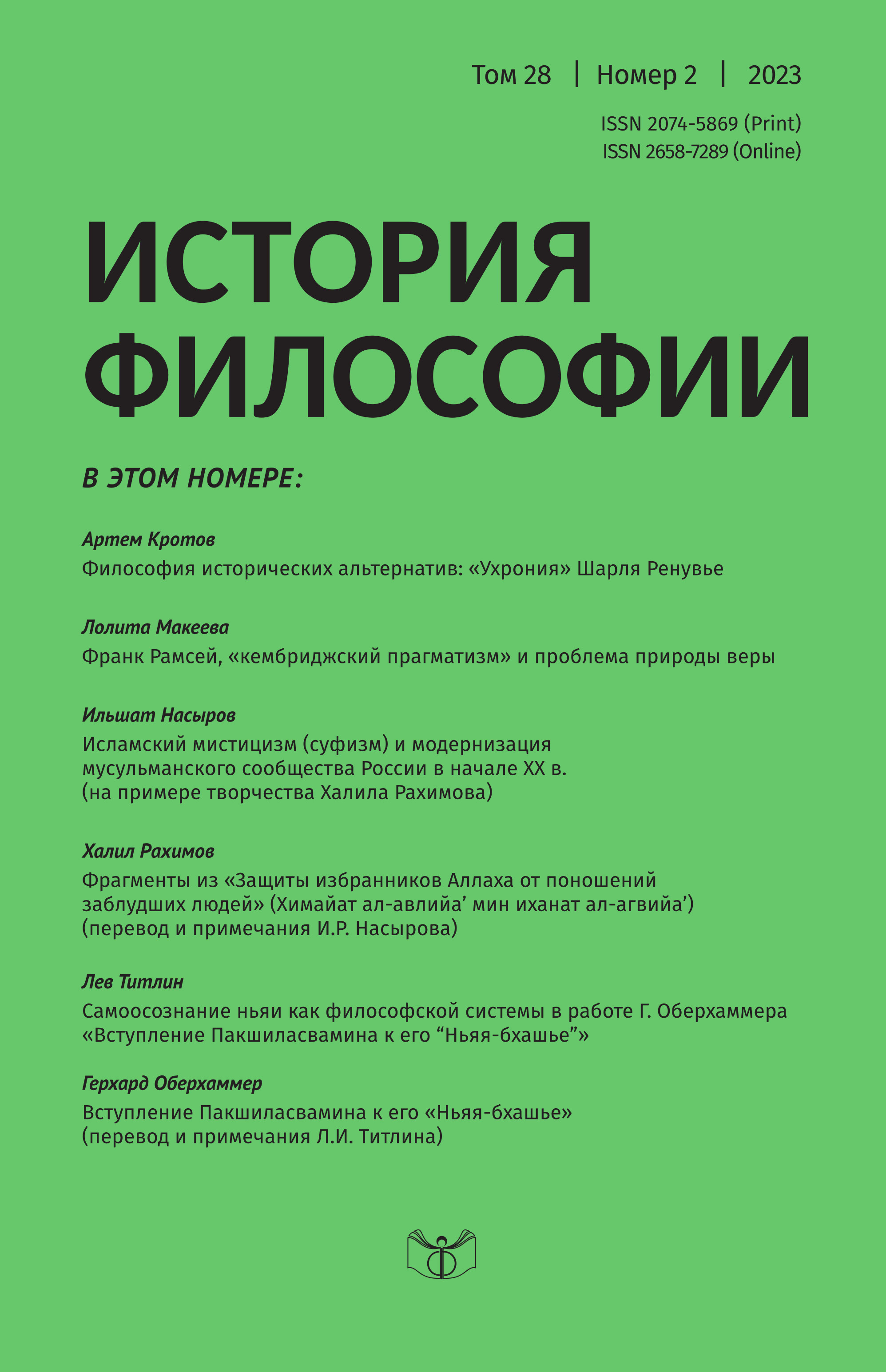Frank Ramsey, Cambridge Pragmatism and the Problem of Belief
DOI:
https://doi.org/10.21146/10.21146/2074-5869-2023-28-2-60-73Keywords:
pragmatism, Cambridge pragmatism, analytic philosophy, belief, empiricism, neutral monism, mental stateAbstract
The paper discusses Cambridge pragmatism which is understood as certain views of a few Cambridge philosophers (B. Russell, Ch. Ogden, F. Ramsey) in the 1920s. Frank Ramsey is regarded as the crucial and most interesting proponent of those views. The philosophers who have introduced the term Cambridge pragmatism (H. Price, Ch. Misak) propose to reconsider the “standard” history which, in their view, underestimates the influence of American pragmatism on the Cambridge philosophers in question. It, first of all, concerns Ramsey who, in Misak’s words, created “the most compelling version” of pragmatism. The aim of the paper is to try to figure out, taking, as a kind of test, the problem of belief which was intensively discussed by both the American pragmatists and the Cambridge philosophers of the 1920s and the particular solution of which constitutes, so to say, the kernel of pragmatism, which of the approaches to understanding Ramsey’s view – the standard history or Misak’s history – is more justified. It is concluded that the differences between the two approaches are determined by the fact that they evaluate Ramsey’s ideas from the position of different conceptions of pragmatism. It is noted that a more interesting task for historians of philosophy is to explain why such organic syntheses of analytic philosophy and pragmatism, as we have in the case of Ramsey, are possible.

